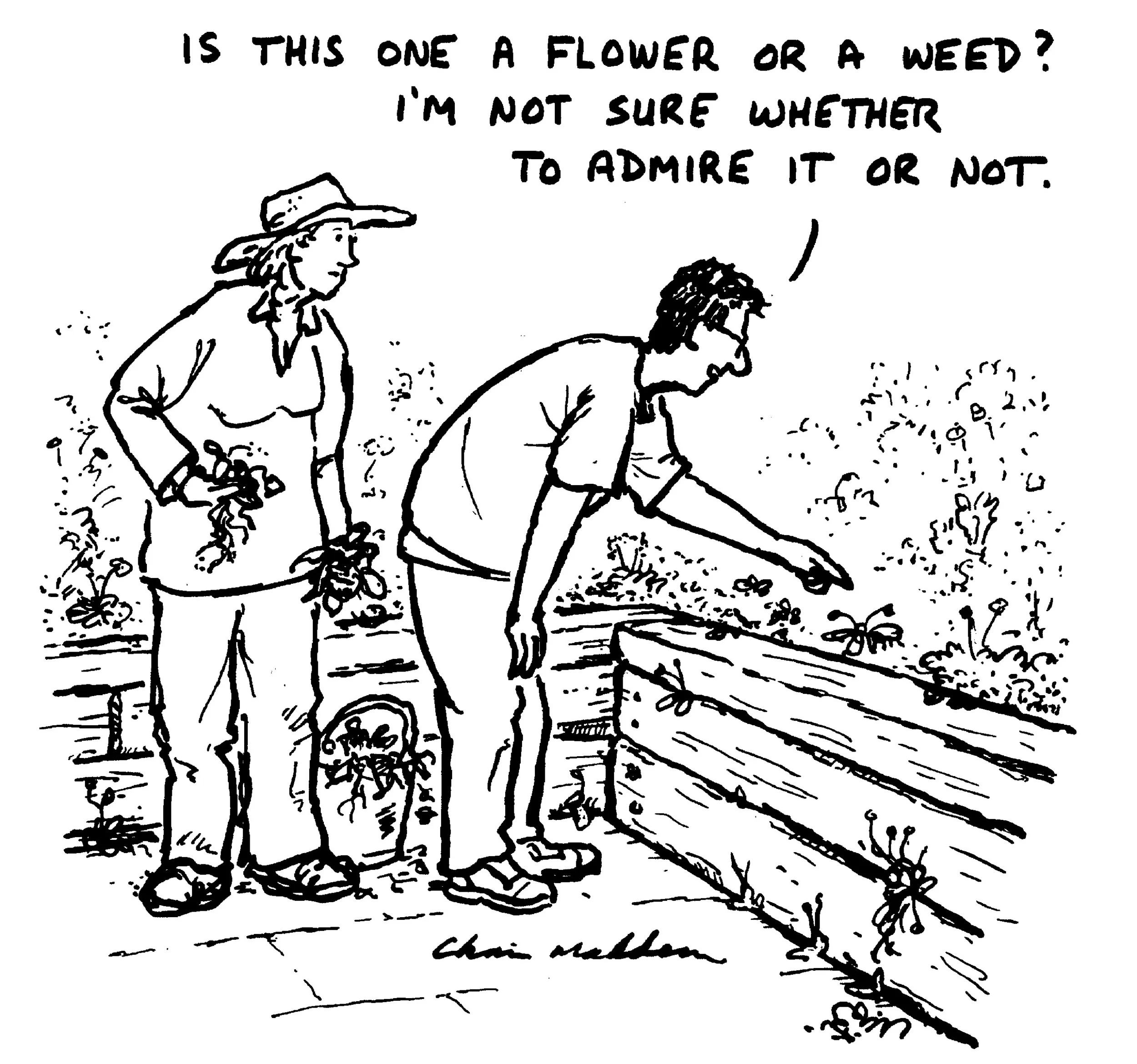by Joanie Butman
When we moved to Connecticut from Manhattan thinking we were doing it for the kids, they wouldn’t get out of the car because ‘there were bugs out there.’ They hated the feel of grass on their feet, and my son toddled aimlessly in this sprawling house voicing what I too was feeling, ‘miss the city.’ I remember waking up that first morning to the cacophony of a gaggle of geese on our lawn and my husband chasing them with a broom. I thought to myself, “What have we done?” It felt like a scene out of Green Acres.
Faced with the momentous task of maintaining a property that far exceeded anything I had ever seen, I would have paved as much of it as possible if permitted and am still tempted to do just that. It remains a daunting responsibility if viewed in its entirety and luckily we have the resources to farm out lawn care. I carved out little spots that I can cultivate, but leave the general caretaking to the professionals. I choose to focus on my little plot and leave the big picture to those better equipped to handle it. Having spent a large part of my life in the city, gardening did not come easily or without costly mistakes. Mirrors my life too.
We are now deep into the gardening season. My fingernails are stained and my hands rough from happily digging in the earth. Blooming perennials are at their finest, robust and fresh from the spring rains as opposed to the wilted aridity of August. It is now warm enough to plant colorful annuals to add a rainbow of color that compliments and enhances a garden heavily weighted with perennials whose blooms, though beautiful, are usually short-lived.
Unlike my Connecticut yard, my garden in Massachusetts is the perfect size—a postage-size rock garden that is easily maintained. Even so, it still takes a lot of time and TLC to coax it back to life and keep it watered and well fed during the summer. Without a doubt, the most tedious part of gardening has got to be weeding. It is a never-ending task. There is some bizarre rule of nature that causes undesirable weeds to grow and spread faster than the plants so lovingly sown. Sounds like gossip. In this age of technology, the information that goes viral is usually of the toxic variety not the type you want proliferating.
My daughter worked one day with a gardener recently. When she came home I inquired, “Was it fun?” Her look spoke volumes, but she simply said, “I just spent seven hours weeding. I wouldn’t describe it as fun.” I had to agree, weeding’s no fun. It can be grueling, tedious, exhausting work.
We are all gardeners of some sort and do our own fair share of weeding. We weed out our clothes, our junk, our in-boxes, our memories, our thoughts, our commitments, our diets, even people in our lives. It is often hard work but comes with a certain satisfaction, a lightness of being that is the result of ridding yourself of excess baggage that is weighing you down. As a Christian, that is the way I choose to view the constant struggle to correct certain behavioral patterns. Without a doubt, there are areas in my life where I am a chronic recidivist.
Disappointingly, even though my faith has grown over the years to a level I never dreamed possible, I still commit the same sins I did before I embraced Christianity. My father told me once to think of my sins like a gardener. You can’t just weed once. It is an on-going process. The same weeds keep coming back, and our job is to keep pulling them out because if we ignore them, they will take over the garden choking out the plants which produce the most beauty. Faith doesn’t produce a weed-free garden. It just gives us the impetus to keep digging.
Let’s face it—you can’t be a good gardener without getting dirty. In the same way, you can’t be a good Christian (if there is such a thing) without choosing to recognize just how much muck you have under your nails or that there will be times when you will find yourself knee deep in fertilizer. Part of becoming a proficient gardener is learning the difference between a flower and a weed. Learning to recognize the weeds in your life is also the secret to personal and spiritual growth regardless of your beliefs.
I sincerely believe this type of self-assessment is what Socrates meant by his statement, "The unexamined life is not worth living." It was his belief that “we are unable to grow toward greater understanding of our true nature unless we take the time to examine and reflect upon our life.” *
Did I ever become a proficient gardener? No, just an avid one. I do not have a green thumb, but I can now identify the undesirables in my garden – and not all of them are necessarily weeds. I particularly dislike plants which require high maintenance. Over the years, if I plant something that becomes too troublesome, I just choose to dig it up and replace it with a heartier, healthier one. By now I know the ones that work and the ones to avoid. I wish I could say I’ve been just as successful with my bothersome habits. Hence, the need for on-going weeding which, not surprisingly, is best done on your knees.
My closing observation is that those who choose to dedicate lots of time digging in the dirt tend to be the best gardeners. They’ve earned their wisdom through trial and error and lots and lots of weeding. Similarly, the wisest people I know in life are those that choose to dig deeper for meaning and enlightenment in their own backyards and also spend lots of time on their knees weeding.
I will leave you with one last thought to ponder this week, "Choosing to criticize another's garden doesn't keep the weeds out of your own. " ~ Author Unknown
*http://www.consciousearth.us/socrates-unexamined-life.html









































